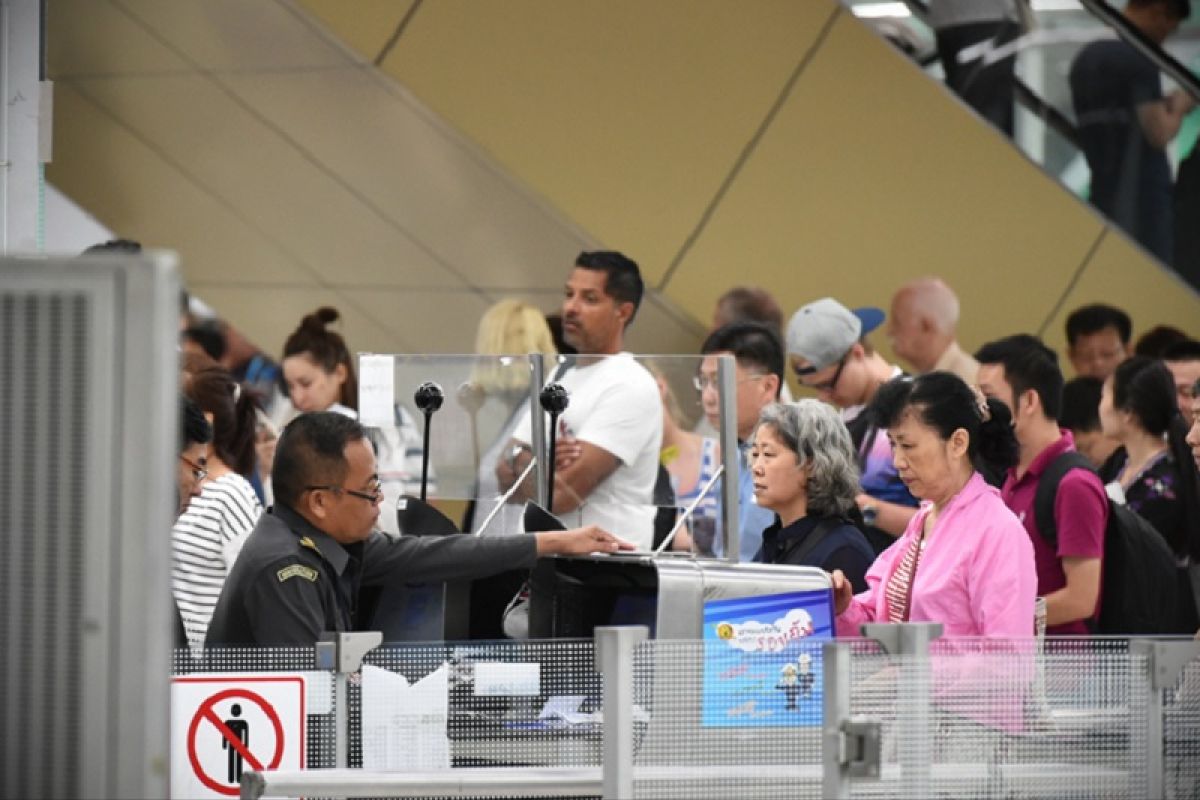Safe passage coordination between member economies needs to continue even when the pandemic becomes endemicJakarta (ANTARA) - APEC member economies are ramping up efforts to revitalize cross-border travel by tackling lingering uncertainties faced by travelers even as the COVID-19 pandemic enters its third year.
Through a report developed by the APEC Policy Support Unit, APEC’s Safe Passage Taskforce put forward recommendations to drive the forum’s work on passenger movements in the region, looking into issues at and behind the border that can be addressed to facilitate travel and tourism in the region, according to a release issued by the APEC Safe Passage Taskforce on Wednesday.
According to the report, international tourist arrivals to APEC economies fell by 79.1 percent in 2020 relative to 2019, which is higher than the 69.8-percent contraction registered in the rest of the world.
While the rest of the world saw an increase of 18.4 percent in tourist arrivals between 2020 and 2021, arrivals in the APEC region continued to decline by 28.3 percent during the same period.
"Safe passage coordination between member economies needs to continue even when the pandemic becomes endemic," Thailand’s APEC Senior Official and the chair of the taskforce, Cherdchai Chaivaivid, stated.
"Beyond COVID-19, we need to come together and build that resilience in the face of future pandemics or crises that may affect cross-border travel," Cherdchai remarked.
He emphasized that travel and tourism are key to economic growth of the Asia-Pacific region, so facilitating the safe resumption of cross-border movements will continue to feature post-pandemic.
Since its inception earlier this year, the taskforce has been exchanging best practices on the safe resumption of cross-border travel at the domestic, sub-regional, and regional levels.
It has worked towards greater alignment of approaches across APEC, for instance, through policy discussions on facilitating travel for air and maritime crew as well as improved interoperability of vaccine certificates issued by APEC economies.
Earlier this year, APEC trade ministers welcomed the Voluntary Principles for the Interoperability of Vaccination Certificates in the APEC Region during their meeting in Bangkok in May.
Related news: Govt provides three recommendations on SME policy-making
The voluntary principles encourage members to recognize vaccination certificates issued by other APEC economies as proof of an individual’s COVID-19 vaccination status for cross-border entry and use within borders.
"Containing COVID-19 through widespread and equitable access to vaccines is still the most important prerequisite to safely reopen borders and resume travel and tourism in the region," Emmanuel San Andres, a senior analyst with the Policy Support Unit, stated.
Andres accentuated the need to strike a balance between policies that save lives and policies that enable economic activity and people-to-people connectivity.
Related news: Gov't says to continue structural reforms at APEC meeting
"Key to finding this sweet spot is ensuring that border policies are based on the best public health science and empirical data," he stated.
The report also emphasizes the importance of providing clear information to travelers about entry requirements relating to COVID-19. The information needs to be up-to-date, and access should be easy.
Thailand recently launched a one-stop information hub that highlights the summary of health and COVID-related border measures across APEC.
The report highlighted that regional mobility issues are cross-cutting and involve several ministries.
It recommends member economies to continue coordination and cooperation and develop a mechanism that is flexible, ready, and quick in order to immediately respond to future risks to cross-border mobility.
Related news: APEC launches information hub for international travel
Related news: Trudeau to participate in ASEAN, G20, and APEC Summits
Reporter: Yuni Arisandy Sinaga
Editor: Fardah Assegaf
Copyright © ANTARA 2022











